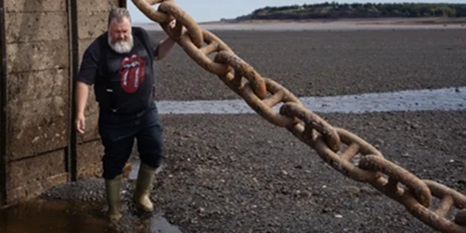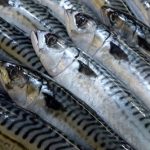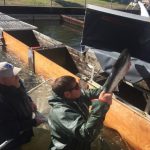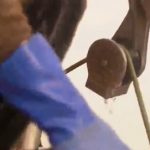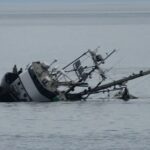Tag Archives: Nova Scotia
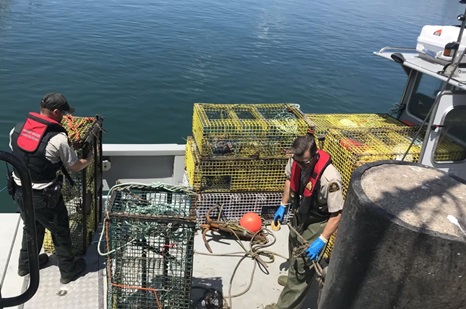
Federal memo estimates more than $176M of Atlantic lobster catch unreported, untaxed
The federal Department of Fisheries and Oceans suspects hundreds of millions of dollars’ worth of lobster is caught in Atlantic Canadian waters each year but never reported to authorities, raising both tax evasion and conservation implications in the country’s largest fishery. An internal memo in August to DFO’s deputy minister said it’s estimated that between 10 and 30 per cent of lobster landings in the region are unreported, and the department said in a statement it is working to map out criminal networks and money laundering in the sector. “It’s mind-boggling,” said Osborne Burke, the president of the Nova Scotia Seafood Alliance, which represents about 150 lobster buyers and processors and has urged a crackdown on unreported cash sales. more, >>CLICK TO READ<< 06:44
Commercial fishers seek $10 million in damages against ‘illegal’ N.S. lobster buyers
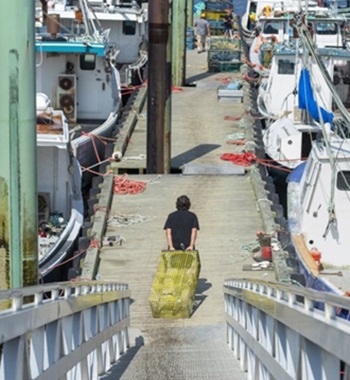 A commercial lobster fishing group in Nova Scotia has gone to court seeking $10 million in damages against those it alleges are buying lobster caught illegally in St. Mary’s Bay. The Unified Fisheries Conservation Alliance filed notice in the Supreme Court of Nova Scotia on Tuesday against Independent Fisheries Limited of Little Harbour, N.S., and its president Xiaoming Mao. The alliance is also suing the owners and operators of Fisher Direct Ltd. and Seawell Holdings Ltd., both based in Shag Harbour, N.S. The allegations have not been proven in court, and the defendants either declined to comment or were not immediately available to respond today. more, >>CLICK TO READ<< 12:28
A commercial lobster fishing group in Nova Scotia has gone to court seeking $10 million in damages against those it alleges are buying lobster caught illegally in St. Mary’s Bay. The Unified Fisheries Conservation Alliance filed notice in the Supreme Court of Nova Scotia on Tuesday against Independent Fisheries Limited of Little Harbour, N.S., and its president Xiaoming Mao. The alliance is also suing the owners and operators of Fisher Direct Ltd. and Seawell Holdings Ltd., both based in Shag Harbour, N.S. The allegations have not been proven in court, and the defendants either declined to comment or were not immediately available to respond today. more, >>CLICK TO READ<< 12:28
Fishing boat Captain Craig Sock honoured for Bravery
 Craig “Jumbo” Sock, the Elsipogtog fishing boat captain who lost his life while rescuing members of his crew in 2021, was honoured Thursday with the Governor General’s Medal of Bravery. The Governor General’s office said in a news release that Sock was one of 38 Canadians to receive the Medal of Bravery during a ceremony in Ottawa Thursday. The award was presented to his widow, Sue Ann Sock, and their children, Tessa and Tyrone Sock. “On April 3, 2021, Captain Craig Sock lost his life rescuing the crew of the fishing vessel Tyhawk,” the citation from the Governor General said. “During a storm at sea, the boat capsized, trapping Sock and a crewmate in the wheelhouse. He freed his crewmate and then found the remaining crew on the overturned hull. Captain Sock re-entered the water to rescue an unconscious victim, pushing him to safety moments before disappearing underwater. Sadly, the captain did not resurface. more, >>CLICK TO READ<< 14:50
Craig “Jumbo” Sock, the Elsipogtog fishing boat captain who lost his life while rescuing members of his crew in 2021, was honoured Thursday with the Governor General’s Medal of Bravery. The Governor General’s office said in a news release that Sock was one of 38 Canadians to receive the Medal of Bravery during a ceremony in Ottawa Thursday. The award was presented to his widow, Sue Ann Sock, and their children, Tessa and Tyrone Sock. “On April 3, 2021, Captain Craig Sock lost his life rescuing the crew of the fishing vessel Tyhawk,” the citation from the Governor General said. “During a storm at sea, the boat capsized, trapping Sock and a crewmate in the wheelhouse. He freed his crewmate and then found the remaining crew on the overturned hull. Captain Sock re-entered the water to rescue an unconscious victim, pushing him to safety moments before disappearing underwater. Sadly, the captain did not resurface. more, >>CLICK TO READ<< 14:50
Fishermen greet DFO baby eel licence plan with uncertainty
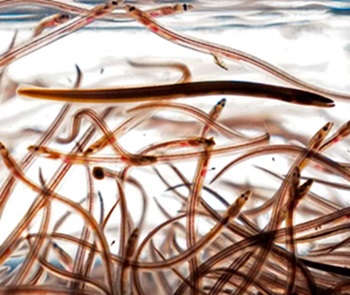 The department is offering 120 fishermen currently employed by the eight commercial groups their own small licences for next year’s season, in what the letters say is a bid to “broaden the distribution of benefits” of the fishery. It is also offering elver licences to 30 fishermen currently licensed to catch adult eels. Austin Townsend, a 26-year-old elver fisherman from Lockeport, N.S., said while the proposal looks good for him on paper, he’s suspicious of the “Robin Hood” tactic where quota is simply plucked from the commercial groups, and worries he could be worse off financially. He said in a good season, he will make between $40,000 and $90,000 working for Shelburne Elver, which has the equipment to hold elvers and the networks to export them. But Townsend said if he goes it alone, he will still likely have to sell to a middleman who will take a cut. Photos, more, >>CLICK TO READ<< 14:23
The department is offering 120 fishermen currently employed by the eight commercial groups their own small licences for next year’s season, in what the letters say is a bid to “broaden the distribution of benefits” of the fishery. It is also offering elver licences to 30 fishermen currently licensed to catch adult eels. Austin Townsend, a 26-year-old elver fisherman from Lockeport, N.S., said while the proposal looks good for him on paper, he’s suspicious of the “Robin Hood” tactic where quota is simply plucked from the commercial groups, and worries he could be worse off financially. He said in a good season, he will make between $40,000 and $90,000 working for Shelburne Elver, which has the equipment to hold elvers and the networks to export them. But Townsend said if he goes it alone, he will still likely have to sell to a middleman who will take a cut. Photos, more, >>CLICK TO READ<< 14:23
N.S. minister hopes changes to fish buyer, processor licences will help curb illegal activity
 The Nova Scotia government is introducing new licence conditions for fish buyers and processors that officials hope will help crack down on illegal fishing. Kent Smith, the province’s fisheries minister, detailed the changes in a letter that accompanied a package sent to licence holders earlier this month. Changes include moving to two-year terms and aligning processor licences with Canadian Food Inspection Agency requirements. Processors will also be required to report the source location of fish and fish products entering the facility and the location of sales at both the provincial and country level. But the biggest changes focus on Nova Scotia’s king crustacean, lobster. Lobster buyers will be required to provide the locations and details pertaining to all holding and handling facilities they own, lease or use. Licence holders will only be allowed to store and/or handle their lobsters at facilities listed on their buyer’s licence. more, >>CLICK TO READ<< 12:15
The Nova Scotia government is introducing new licence conditions for fish buyers and processors that officials hope will help crack down on illegal fishing. Kent Smith, the province’s fisheries minister, detailed the changes in a letter that accompanied a package sent to licence holders earlier this month. Changes include moving to two-year terms and aligning processor licences with Canadian Food Inspection Agency requirements. Processors will also be required to report the source location of fish and fish products entering the facility and the location of sales at both the provincial and country level. But the biggest changes focus on Nova Scotia’s king crustacean, lobster. Lobster buyers will be required to provide the locations and details pertaining to all holding and handling facilities they own, lease or use. Licence holders will only be allowed to store and/or handle their lobsters at facilities listed on their buyer’s licence. more, >>CLICK TO READ<< 12:15
DFO ordered to improve officer gear to counter threat from ‘criminals’ with firearms
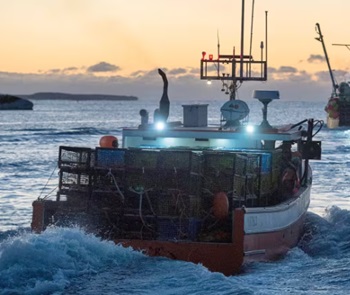 In a report issued Friday to the Fisheries Department, the federal Labour Program’s compliance unit concludes “protective equipment and tactical protocols” currently used during fisheries investigations are inadequate. The investigator concludes fishery officers in the Maritime region are having to confront people with weapons, including cases where intelligence indicates the fisher “keeps an assault rifle on board.” The report also says there are cases where “outlaw motorcycle gangs are armed with firearms.” It concurs with fishery officers that “a number of the illegal fishers that officers deal with regularly are convicted violent criminals and have threatened officers directly and on social media.” Doug Wentzell, the federal Fisheries Department’s regional manager for the Maritimes, said in an interview last week that a number of officers have refused field work, but he declined to say how many. more, >>CLICK TO READ<< 10:45
In a report issued Friday to the Fisheries Department, the federal Labour Program’s compliance unit concludes “protective equipment and tactical protocols” currently used during fisheries investigations are inadequate. The investigator concludes fishery officers in the Maritime region are having to confront people with weapons, including cases where intelligence indicates the fisher “keeps an assault rifle on board.” The report also says there are cases where “outlaw motorcycle gangs are armed with firearms.” It concurs with fishery officers that “a number of the illegal fishers that officers deal with regularly are convicted violent criminals and have threatened officers directly and on social media.” Doug Wentzell, the federal Fisheries Department’s regional manager for the Maritimes, said in an interview last week that a number of officers have refused field work, but he declined to say how many. more, >>CLICK TO READ<< 10:45
Federal fisheries officers refusing duties because of violence on the water in N.S.
 Federal fisheries officers in Nova Scotia say they’re refusing some enforcement duties because of threats to their safety, as they await Ottawa’s response to their complaints. The union representing the officers says its members have been shot at, that people have tried to steal their firearms, and that officers — and their families — have been threatened for trying to stop illegal fishing. Commercial fishers, meanwhile, are calling for increased enforcement, saying that illegal and unregulated fishing is becoming more frequent across the province. “We want real, tangible enforcement activity placed upon the illegal, black market lobster activity that’s ongoing throughout the Maritimes,” said Dan Fleck, executive director of the Brazil Rock 33/34 Lobster Association, in a recent telephone interview. more, >>CLICK TO READ<< 07:52
Federal fisheries officers in Nova Scotia say they’re refusing some enforcement duties because of threats to their safety, as they await Ottawa’s response to their complaints. The union representing the officers says its members have been shot at, that people have tried to steal their firearms, and that officers — and their families — have been threatened for trying to stop illegal fishing. Commercial fishers, meanwhile, are calling for increased enforcement, saying that illegal and unregulated fishing is becoming more frequent across the province. “We want real, tangible enforcement activity placed upon the illegal, black market lobster activity that’s ongoing throughout the Maritimes,” said Dan Fleck, executive director of the Brazil Rock 33/34 Lobster Association, in a recent telephone interview. more, >>CLICK TO READ<< 07:52
$100K worth of lobster seized from southwest N.S. facility, 1 Arrested
 Federal fisheries officers have seized more than 5,900 kilograms of lobster as well as documents and electronic records during the search of a facility in Shelburne County, N.S. One person has been arrested and is being investigated for potential charges under the Fisheries Act in connection with maintaining a lobster pound without the required licence, according to the Department of Fisheries and Oceans. Social media posts from the federal department said officers obtained a search warrant for the operation that happened on Wednesday. DFO said in its posts that “fishery officers have been taking enforcement measures ranging from compliance awareness to making arrests and seizing unauthorized catch, equipment and vessels.” more, >>CLICK TO READ<< 13:28
Federal fisheries officers have seized more than 5,900 kilograms of lobster as well as documents and electronic records during the search of a facility in Shelburne County, N.S. One person has been arrested and is being investigated for potential charges under the Fisheries Act in connection with maintaining a lobster pound without the required licence, according to the Department of Fisheries and Oceans. Social media posts from the federal department said officers obtained a search warrant for the operation that happened on Wednesday. DFO said in its posts that “fishery officers have been taking enforcement measures ranging from compliance awareness to making arrests and seizing unauthorized catch, equipment and vessels.” more, >>CLICK TO READ<< 13:28
Nova Scotia: GCIFA wants fewer sites considered for offshore wind
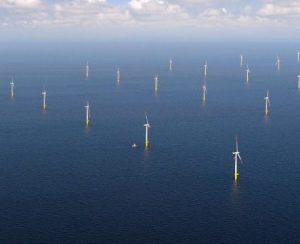 Concerned about the effects of massive turbine installations and operations on or near commercial fishing grounds, the Guysborough County Inshore Fisherman’s Association (GCIFA) wants two of the six sites being considered for offshore wind (OSW) farms in Nova Scotia removed from the list of potential future development areas (PFDAs). We request [that these PFDAs] be deleted from further consideration. “The Canso-based organization – representing roughly 150 small-boat harvesters on the Eastern Shore – also raises issues over use of the Middle Bank PFDA and the combined size of the areas under consideration and suggests that all OSW farms be located around Sable Island, where there are “very low [existing] commercial landings,” and they can do the least harm to harvesters. more, >>CLICK TO READ<< 07:59
Concerned about the effects of massive turbine installations and operations on or near commercial fishing grounds, the Guysborough County Inshore Fisherman’s Association (GCIFA) wants two of the six sites being considered for offshore wind (OSW) farms in Nova Scotia removed from the list of potential future development areas (PFDAs). We request [that these PFDAs] be deleted from further consideration. “The Canso-based organization – representing roughly 150 small-boat harvesters on the Eastern Shore – also raises issues over use of the Middle Bank PFDA and the combined size of the areas under consideration and suggests that all OSW farms be located around Sable Island, where there are “very low [existing] commercial landings,” and they can do the least harm to harvesters. more, >>CLICK TO READ<< 07:59
N.S. judge upholds fisheries minister’s right to impose licence moratorium
 A Supreme Court of Nova Scotia judge has rejected an attempt by a Meteghan lobster processor to have the courts overturn a decision made or upheld by three fisheries ministers in Nova Scotia Lobster Hub Inc. first applied for a fish buyers and processors licence in February 2021. The company wants to process snow crab in addition to lobster at its processing plant. The Department of Fisheries and Aquaculture rejected the application, citing a moratorium placed on those licences unless they were tied to an aquaculture operation or secondary processing. The freeze has been in place since 2018 while the department reviews its licensing policy. The company appealed but Liberal fisheries minister Keith Colwell rejected it about a month before the PCs took power in 2021. The company tried to lobby Premier Tim Houston about a year later, expressing concern about Colwell’s reasoning. more, >>CLICK TO READ<< 12:35
A Supreme Court of Nova Scotia judge has rejected an attempt by a Meteghan lobster processor to have the courts overturn a decision made or upheld by three fisheries ministers in Nova Scotia Lobster Hub Inc. first applied for a fish buyers and processors licence in February 2021. The company wants to process snow crab in addition to lobster at its processing plant. The Department of Fisheries and Aquaculture rejected the application, citing a moratorium placed on those licences unless they were tied to an aquaculture operation or secondary processing. The freeze has been in place since 2018 while the department reviews its licensing policy. The company appealed but Liberal fisheries minister Keith Colwell rejected it about a month before the PCs took power in 2021. The company tried to lobby Premier Tim Houston about a year later, expressing concern about Colwell’s reasoning. more, >>CLICK TO READ<< 12:35
Maritime lobster harvesters walk out of DFO meeting over illegal fishing concerns
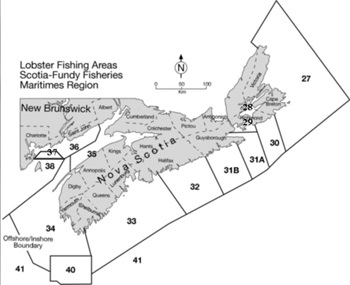 Lobster harvesters from the Maritimes walked out of a meeting with DFO Tuesday after officials allegedly refused to discuss the illegal fishing that has been taking place out of season since August. At the beginning of the meeting, a motion was made by harvester representatives to discuss the issue of ongoing poaching throughout the region. When DFO officials refused to amend the agenda, representatives from Lobster Fishing Areas 27 through 38 walked out, according to a statement from 11 fishing associations representing 3,000 lobster licence holders from across Nova Scotia and New Brunswick. Representatives of lobster harvesters said they would return to the table when DFO is prepared to discuss a plan to end black market, out of season fishing, which they say is an “enormous threat” facing the industry. more, >>CLICK TO READ<< 12:31
Lobster harvesters from the Maritimes walked out of a meeting with DFO Tuesday after officials allegedly refused to discuss the illegal fishing that has been taking place out of season since August. At the beginning of the meeting, a motion was made by harvester representatives to discuss the issue of ongoing poaching throughout the region. When DFO officials refused to amend the agenda, representatives from Lobster Fishing Areas 27 through 38 walked out, according to a statement from 11 fishing associations representing 3,000 lobster licence holders from across Nova Scotia and New Brunswick. Representatives of lobster harvesters said they would return to the table when DFO is prepared to discuss a plan to end black market, out of season fishing, which they say is an “enormous threat” facing the industry. more, >>CLICK TO READ<< 12:31
Lobster fishing industry reps remain concerned about illegal fishing
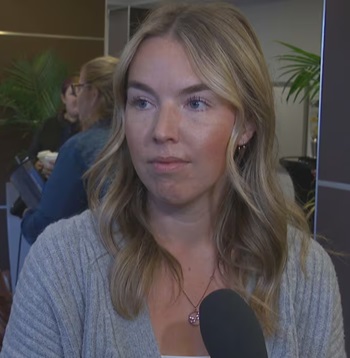 A hastily organized meeting with senior Fisheries Department officials on Tuesday did nothing to quell concerns among commercial lobster industry representatives about illegal fishing and insufficient enforcement along coastal communities. The meeting came together hours after people attending a gathering of the Maritimes Region Lobster Advisory Committee in Dartmouth, N.S., walked out in protest when a motion to change the agenda to deal only with enforcement and illegal fishing was rejected. “It’s the No. 1 industry in Atlantic Canada and we feel abandoned,” Dan Fleck, executive director of the Brazil Rock 33/34 Lobster Association, told reporters after walking out of the morning session. more, >>CLICK TO READ<< 07:26
A hastily organized meeting with senior Fisheries Department officials on Tuesday did nothing to quell concerns among commercial lobster industry representatives about illegal fishing and insufficient enforcement along coastal communities. The meeting came together hours after people attending a gathering of the Maritimes Region Lobster Advisory Committee in Dartmouth, N.S., walked out in protest when a motion to change the agenda to deal only with enforcement and illegal fishing was rejected. “It’s the No. 1 industry in Atlantic Canada and we feel abandoned,” Dan Fleck, executive director of the Brazil Rock 33/34 Lobster Association, told reporters after walking out of the morning session. more, >>CLICK TO READ<< 07:26
Feds fund offshore wind study hoping to boost market in Atlantic Canada
 Federal funding for a pioneering offshore wind power grid study in the Canadian Maritimes should help draw big-hitting developers to the region’s first project auction next year. But commercialization of the market remains on the far horizon, says a leading industry analyst. Ottawa earlier this week awarded $6 million to Net Zero Atlantic, a low-carbon research and development hub in Nova Scotia, for the Atlantic Canada Offshore Wind Integration and Transmission Study, which aims to show how future offshore wind farms could export power to the onshore electricity network. While $6 million of the funding to Net Zero Atlantic will go toward the grid study, a further $3.25 million will be dedicated to technologies associated with fishing vessels and ferry fleets, agriculture, carbon capture, hydrogen and energy storage. more, >>CLICK TO READ<< 07:38
Federal funding for a pioneering offshore wind power grid study in the Canadian Maritimes should help draw big-hitting developers to the region’s first project auction next year. But commercialization of the market remains on the far horizon, says a leading industry analyst. Ottawa earlier this week awarded $6 million to Net Zero Atlantic, a low-carbon research and development hub in Nova Scotia, for the Atlantic Canada Offshore Wind Integration and Transmission Study, which aims to show how future offshore wind farms could export power to the onshore electricity network. While $6 million of the funding to Net Zero Atlantic will go toward the grid study, a further $3.25 million will be dedicated to technologies associated with fishing vessels and ferry fleets, agriculture, carbon capture, hydrogen and energy storage. more, >>CLICK TO READ<< 07:38
N.S. fisheries minister renews call to his federal counterpart for help on illegal fishing
 Nova Scotia’s fisheries and aquaculture minister says his federal counterpart’s silence in response to calls for action against illegal fishing in the province’s southwestern region sends a message to the industry and communities affected that she does not care. Kent Smith wrote to federal Fisheries Minister Diane Lebouthillier on Wednesday after receiving no response to a previous letter last month that raised concerns about illegal lobster fishing in the Clare region and public safety concerns tied to that activity. I’m feeling as though there’s not enough priority put on this file from her and her senior leadership,” Smith said in an interview at Province House. Although some First Nations fishers are practising a legal and treaty-recognized food, social and ceremonial fishery in the region, commercial fishing organizations, Smith and other politicians have expressed concern that some people are illegally fishing outside the FSC fishery and that those catches are entering the commercial market. more, >>>CLICK TO READ<< 10:37
Nova Scotia’s fisheries and aquaculture minister says his federal counterpart’s silence in response to calls for action against illegal fishing in the province’s southwestern region sends a message to the industry and communities affected that she does not care. Kent Smith wrote to federal Fisheries Minister Diane Lebouthillier on Wednesday after receiving no response to a previous letter last month that raised concerns about illegal lobster fishing in the Clare region and public safety concerns tied to that activity. I’m feeling as though there’s not enough priority put on this file from her and her senior leadership,” Smith said in an interview at Province House. Although some First Nations fishers are practising a legal and treaty-recognized food, social and ceremonial fishery in the region, commercial fishing organizations, Smith and other politicians have expressed concern that some people are illegally fishing outside the FSC fishery and that those catches are entering the commercial market. more, >>>CLICK TO READ<< 10:37
Editorial: Ottawa must answer the bell on lobster poaching
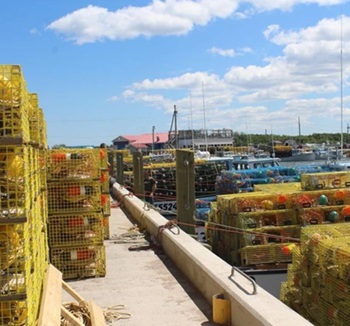 The federal government must do more to address complaints about out-of-season fishing and lobster poaching in the Bay of Fundy – issues that have come to public attention in the last couple of weeks as fishing operators in New Brunswick and Nova Scotia plead for better enforcement. Clearly something is amiss when you have local business owners threatening to take matters into their own hands by pulling up illegal gear – an action that may spark confrontations on the water or at wharves along the Fundy coast. The Nova Scotia fisheries minister has lent further credence by writing to his federal counterpart, warning of an underground fishery and reports of threats and intimidation for speaking out. more, >>CLICK TO READ<< 15:18
The federal government must do more to address complaints about out-of-season fishing and lobster poaching in the Bay of Fundy – issues that have come to public attention in the last couple of weeks as fishing operators in New Brunswick and Nova Scotia plead for better enforcement. Clearly something is amiss when you have local business owners threatening to take matters into their own hands by pulling up illegal gear – an action that may spark confrontations on the water or at wharves along the Fundy coast. The Nova Scotia fisheries minister has lent further credence by writing to his federal counterpart, warning of an underground fishery and reports of threats and intimidation for speaking out. more, >>CLICK TO READ<< 15:18
Fishers want ‘incredibly important’ Georges Bank protected against offshore wind development
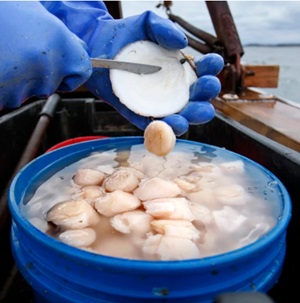 As Nova Scotia rushes to establish an offshore wind industry, some fishers are calling for explicit protection for the rich fishing ground on Georges Bank. The cabinet minister in charge of developing renewable energy projects says he will keep turbines off the bank, but not by changing a piece of legislation that is now moving through Province House. Ian McIsaac, president of the Seafood Producers Association of Nova Scotia, brought his concerns to a legislature committee Monday as it reviews a new bill that, if passed into law, would enable offshore wind development. McIsaac said Bill 471 doesn’t update the Georges Bank moratorium that’s been in place against offshore petroleum development since the 1980s “We feel this is a technical error,” he said. more, >>CLICK TO READ<< 13:42
As Nova Scotia rushes to establish an offshore wind industry, some fishers are calling for explicit protection for the rich fishing ground on Georges Bank. The cabinet minister in charge of developing renewable energy projects says he will keep turbines off the bank, but not by changing a piece of legislation that is now moving through Province House. Ian McIsaac, president of the Seafood Producers Association of Nova Scotia, brought his concerns to a legislature committee Monday as it reviews a new bill that, if passed into law, would enable offshore wind development. McIsaac said Bill 471 doesn’t update the Georges Bank moratorium that’s been in place against offshore petroleum development since the 1980s “We feel this is a technical error,” he said. more, >>CLICK TO READ<< 13:42
25 years after the Marshall Decision, some say more must be done to uphold treaty rights
 On the 25th anniversary of the Marshall Decision, a landmark court ruling that affirmed First Nations’ treaty right to fish, hunt and gather in pursuit of a moderate livelihood, some say there’s still a long way to go to properly uphold it. The Supreme Court ruling involved Donald Marshall Jr., a Mi’kmaw man from Membertou, N.S., who was arrested and charged with selling eels without a licence outside the Department of Fisheries and Oceans (DFO) regulated season in August 1993. On Sept. 17, 1999, the court ruled that Marshall was justified in doing so in pursuit of a moderate livelihood, under the Peace and Friendship Treaties signed in the 1700s. What became known as the Marshall Decision affected about three dozen Mi’kmaq and Wolastoqiyik First Nations in the Maritimes and the Gaspé region of Quebec. But the court did not clearly define “moderate livelihood,” even in a subsequent clarification. In the decades since, this has contributed to tensions between First Nations fishers, the commercial industry and DFO. more, >>CLICK TO READ<< 09:09
On the 25th anniversary of the Marshall Decision, a landmark court ruling that affirmed First Nations’ treaty right to fish, hunt and gather in pursuit of a moderate livelihood, some say there’s still a long way to go to properly uphold it. The Supreme Court ruling involved Donald Marshall Jr., a Mi’kmaw man from Membertou, N.S., who was arrested and charged with selling eels without a licence outside the Department of Fisheries and Oceans (DFO) regulated season in August 1993. On Sept. 17, 1999, the court ruled that Marshall was justified in doing so in pursuit of a moderate livelihood, under the Peace and Friendship Treaties signed in the 1700s. What became known as the Marshall Decision affected about three dozen Mi’kmaq and Wolastoqiyik First Nations in the Maritimes and the Gaspé region of Quebec. But the court did not clearly define “moderate livelihood,” even in a subsequent clarification. In the decades since, this has contributed to tensions between First Nations fishers, the commercial industry and DFO. more, >>CLICK TO READ<< 09:09
Fishing group expresses concern about oil spill in Saulnierville Harbour
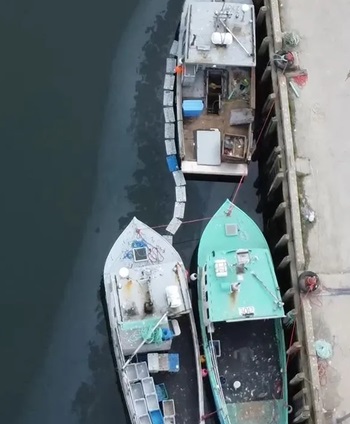 A fishing organization is concerned that a recent oil spill near the government wharf in Saulnierville, N.S., could make people sick and have disastrous implications for the province’s seafood industry if it’s not addressed as soon as possible. The Unified Fisheries Conservation Alliance released video on Thursday of fishing vessels along the wharf surrounded by oil. Tied to some of those boats are crates of lobster floating in the water. “When we saw it we were pretty shocked,” Colin Sproul, the alliance president said in an interview. “We’re really concerned that oil-soaked lobster is going to make it into the marketplace and make people sick.” Officials with the federal government have not yet responded to requests for comment. more, >>CLICK TO READ<< 08:44
A fishing organization is concerned that a recent oil spill near the government wharf in Saulnierville, N.S., could make people sick and have disastrous implications for the province’s seafood industry if it’s not addressed as soon as possible. The Unified Fisheries Conservation Alliance released video on Thursday of fishing vessels along the wharf surrounded by oil. Tied to some of those boats are crates of lobster floating in the water. “When we saw it we were pretty shocked,” Colin Sproul, the alliance president said in an interview. “We’re really concerned that oil-soaked lobster is going to make it into the marketplace and make people sick.” Officials with the federal government have not yet responded to requests for comment. more, >>CLICK TO READ<< 08:44
Norbert Cunningham: Coast Guard can stop poaching
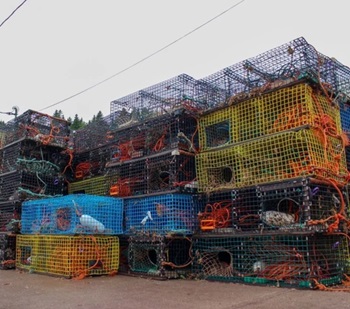 Lobster is a lucrative fishery in Maine and New Brunswick, and it’s past time for the federal Department of Fisheries and Oceans (DFO) to step in an act decisively against American poachers. They can begin with sending in Coast Guard ships to drive intruders out while also initiating another attempt at a better resolution with U.S. authorities. The tensions aren’t new, nor is this the first such flare-up in our waters, but it may be one of the worst and have the most potential for lethal violence. Canadian fishers are seeing evidence and hearing the latest incursions are the work of organized crime, not just fishers straying a bit over unmarked and disputed lines on water. more, >>CLICK TO READ<< 12:08
Lobster is a lucrative fishery in Maine and New Brunswick, and it’s past time for the federal Department of Fisheries and Oceans (DFO) to step in an act decisively against American poachers. They can begin with sending in Coast Guard ships to drive intruders out while also initiating another attempt at a better resolution with U.S. authorities. The tensions aren’t new, nor is this the first such flare-up in our waters, but it may be one of the worst and have the most potential for lethal violence. Canadian fishers are seeing evidence and hearing the latest incursions are the work of organized crime, not just fishers straying a bit over unmarked and disputed lines on water. more, >>CLICK TO READ<< 12:08
Fisheries enforcement ongoing in Nova Scotia and New Brunswick
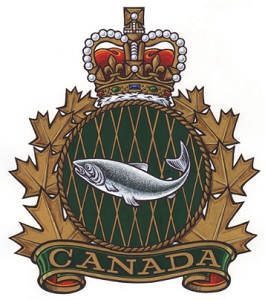 Recently, there has been much speculation and public discussion about the state of enforcement in Fisheries and Oceans Canada’s Maritimes Region, encompassing Southwest Nova Scotia, Eastern Nova Scotia and Southwest New Brunswick, in light of an ongoing job action. For absolute clarity, fisheries enforcement activity in the Maritimes Region is active – to suggest otherwise is false. Fishery officers throughout the region continue to patrol by sea, land and air. They continue to conduct investigations and to work with other policing agencies, the provinces and the Public Prosecution Service of Canada to enforce the law. They are highly trained professionals and their dedication to their work is evident now, as it is every day. more, >>CLICK TO READ<< 11:46
Recently, there has been much speculation and public discussion about the state of enforcement in Fisheries and Oceans Canada’s Maritimes Region, encompassing Southwest Nova Scotia, Eastern Nova Scotia and Southwest New Brunswick, in light of an ongoing job action. For absolute clarity, fisheries enforcement activity in the Maritimes Region is active – to suggest otherwise is false. Fishery officers throughout the region continue to patrol by sea, land and air. They continue to conduct investigations and to work with other policing agencies, the provinces and the Public Prosecution Service of Canada to enforce the law. They are highly trained professionals and their dedication to their work is evident now, as it is every day. more, >>CLICK TO READ<< 11:46
Organized crime linked to illegal lobster fishing ‘terrorizing the community,’ N.S. minister claims
 Nova Scotia’s fisheries minister says the federal failure to stop what he calls illegal out-of-season fishing in some of the most lucrative lobster grounds in the country has fuelled organized crime that is “terrorizing the community” along a stretch of the province’s southwest. Kent Smith made the comments in a letter last week to his federal counterpart, Fisheries Minister Diane Lebouthillier, in which he claims the illegal fishery has “entrenched itself” in the region of Clare and surrounding areas. “This is not related to Indigenous harvesting,” Smith said. “This is illegal lobster fishing that is causing havoc on the ground down there, causing havoc in the community and causing a lot of fear and anxiety in Clare and Meteghan.” more, >>CLICK TO READ<< 15:50
Nova Scotia’s fisheries minister says the federal failure to stop what he calls illegal out-of-season fishing in some of the most lucrative lobster grounds in the country has fuelled organized crime that is “terrorizing the community” along a stretch of the province’s southwest. Kent Smith made the comments in a letter last week to his federal counterpart, Fisheries Minister Diane Lebouthillier, in which he claims the illegal fishery has “entrenched itself” in the region of Clare and surrounding areas. “This is not related to Indigenous harvesting,” Smith said. “This is illegal lobster fishing that is causing havoc on the ground down there, causing havoc in the community and causing a lot of fear and anxiety in Clare and Meteghan.” more, >>CLICK TO READ<< 15:50
Review of prosecutions in chaotic elver fishery finds cases are being pursued
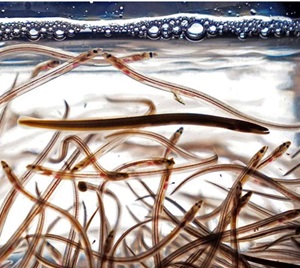 An internal review into whether federal Crown attorneys are refusing to prosecute infractions related to the turbulent baby eel fishery in the Maritimes has reportedly determined that proper discretion is being used and suggests at least two dozen cases have been brought to court. The examination was launched following a formal complaint by a commercial licence holder who alleged the Public Prosecution Service of Canada was failing to prosecute cases involving the unauthorized fishing of the juvenile eels, also known as elvers. In a recent email to the licence holder, David Antonyshyn, the deputy director of prosecutions, said an examination of 70 elver files referred by fisheries officers over a four-year period found about half proceeded to or were approved for prosecution. Others are still under review, while the remainder were declined. “There was not (and there is still not) any blanket policy not to prosecute particular individuals, or not to proceed with any particular type of offence,” Antonyshyn said in the email. more, >>CLICK TO READ<< 15:25
An internal review into whether federal Crown attorneys are refusing to prosecute infractions related to the turbulent baby eel fishery in the Maritimes has reportedly determined that proper discretion is being used and suggests at least two dozen cases have been brought to court. The examination was launched following a formal complaint by a commercial licence holder who alleged the Public Prosecution Service of Canada was failing to prosecute cases involving the unauthorized fishing of the juvenile eels, also known as elvers. In a recent email to the licence holder, David Antonyshyn, the deputy director of prosecutions, said an examination of 70 elver files referred by fisheries officers over a four-year period found about half proceeded to or were approved for prosecution. Others are still under review, while the remainder were declined. “There was not (and there is still not) any blanket policy not to prosecute particular individuals, or not to proceed with any particular type of offence,” Antonyshyn said in the email. more, >>CLICK TO READ<< 15:25
Lobster group files legal action over moderate livelihood fishery
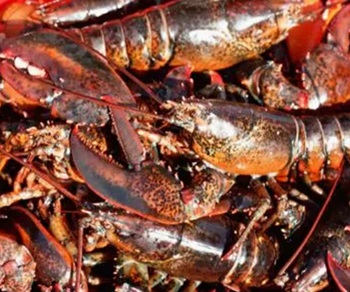 A lobster conservation group in southwestern Nova Scotia is taking legal action against Ottawa and the Sipekne’katik First Nation over out of season fishing. The Unified Fisheries Conservation Alliance (UFCA) filed a notice of action in Supreme Court in an effort to declare the summer fishery illegal. “The Supreme Court of Canada introduced the concept of a moderate livelihood fishery via the Marshall decisions but has never adequately defined the scope and limits that should apply,” said Michel Samson, counsel with the law firm Cox & Palmer. “This has created confusion between the DFO and the Public Prosecution Service as to what laws to enforce. It is imperative that our courts provide the rules and clarity required for both the commercial fishery and for First Nation communities.” more, >>CLICK TO READ<< 13:05
A lobster conservation group in southwestern Nova Scotia is taking legal action against Ottawa and the Sipekne’katik First Nation over out of season fishing. The Unified Fisheries Conservation Alliance (UFCA) filed a notice of action in Supreme Court in an effort to declare the summer fishery illegal. “The Supreme Court of Canada introduced the concept of a moderate livelihood fishery via the Marshall decisions but has never adequately defined the scope and limits that should apply,” said Michel Samson, counsel with the law firm Cox & Palmer. “This has created confusion between the DFO and the Public Prosecution Service as to what laws to enforce. It is imperative that our courts provide the rules and clarity required for both the commercial fishery and for First Nation communities.” more, >>CLICK TO READ<< 13:05
DFO: Some fishery officers refusing work in N.S., citing dangerous conditions
 Some fishery officers with Fisheries and Oceans Canada are refusing work in Nova Scotia out of concern for their safety, the federal department said Thursday. While DFO said in a statement it is “making every effort to minimize operational impacts,” a group representing fishermen in southwest Nova Scotia said enforcement officers are nowhere to be seen to prevent illegal fishing during the off-season. “There’s illegal fishing occurring and there is no enforcement staff on the road or on the water or on the wharfs. And it’s out of hand,” Dan Fleck, executive director of the Brazil Rock Lobster Association, more, >>CLICK TO READ<< 20:33
Some fishery officers with Fisheries and Oceans Canada are refusing work in Nova Scotia out of concern for their safety, the federal department said Thursday. While DFO said in a statement it is “making every effort to minimize operational impacts,” a group representing fishermen in southwest Nova Scotia said enforcement officers are nowhere to be seen to prevent illegal fishing during the off-season. “There’s illegal fishing occurring and there is no enforcement staff on the road or on the water or on the wharfs. And it’s out of hand,” Dan Fleck, executive director of the Brazil Rock Lobster Association, more, >>CLICK TO READ<< 20:33
N.S. Liberals call for new task force to improve enforcement of lobster fishery
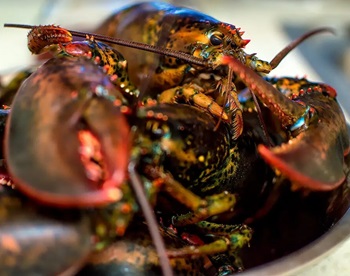 As top fishery officials from around the country arrive in PEI for the Canadian Council of Fisheries and Aquaculture Ministers meeting Nova Scotia’s Liberals are calling for a solution to the ongoing disputes over lobster fishing. Particularly in southwest Nova Scotia tensions have been running high with indigenous lobster fishermen and commercial operators. The Indigenous fishers have a right to a moderate livelihood fishery which was upheld by the Supreme Court. While commercial fishers argue that they need to still observe fishing seasons for the overall health of the lobster fishery. At times the altercations have become violent, which the Liberals say will only continue if things go unchanged. more, >>CLICK TO READ<< 07:42
As top fishery officials from around the country arrive in PEI for the Canadian Council of Fisheries and Aquaculture Ministers meeting Nova Scotia’s Liberals are calling for a solution to the ongoing disputes over lobster fishing. Particularly in southwest Nova Scotia tensions have been running high with indigenous lobster fishermen and commercial operators. The Indigenous fishers have a right to a moderate livelihood fishery which was upheld by the Supreme Court. While commercial fishers argue that they need to still observe fishing seasons for the overall health of the lobster fishery. At times the altercations have become violent, which the Liberals say will only continue if things go unchanged. more, >>CLICK TO READ<< 07:42
N.S. swordfish harpoon fleet urged to bring tourists aboard to boost troubled sector
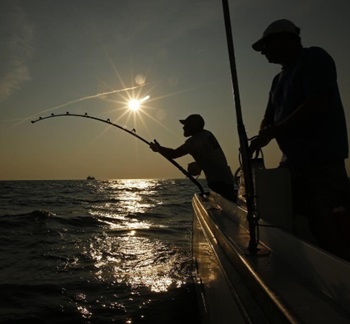 An environmental group says Nova Scotia’s commercial swordfish fleet could generate millions in added revenue by bringing tourists along for fishing trips and using different gear. The Ecology Action Centre says swordfish harpooning — lunging a long spear into the water to catch a fish — has become increasingly difficult and less economically viable because swordfish are appearing less often at the surface due to changing water conditions. In a report released Wednesday, the centre says changing ocean conditions are preventing fishers who use the traditional fishing method from fulfilling their already small swordfish quotas. The group’s solution is for the harpoon fleet to start using a single deepwater hook and line — called rod and reel gear — and to charge tourists to come aboard for a “once-in-a-lifetime experience.” more, >>CLICK TO READ<< 18:49
An environmental group says Nova Scotia’s commercial swordfish fleet could generate millions in added revenue by bringing tourists along for fishing trips and using different gear. The Ecology Action Centre says swordfish harpooning — lunging a long spear into the water to catch a fish — has become increasingly difficult and less economically viable because swordfish are appearing less often at the surface due to changing water conditions. In a report released Wednesday, the centre says changing ocean conditions are preventing fishers who use the traditional fishing method from fulfilling their already small swordfish quotas. The group’s solution is for the harpoon fleet to start using a single deepwater hook and line — called rod and reel gear — and to charge tourists to come aboard for a “once-in-a-lifetime experience.” more, >>CLICK TO READ<< 18:49
Fisheries minister announces external review of Mi’kmaw fishermen’s case
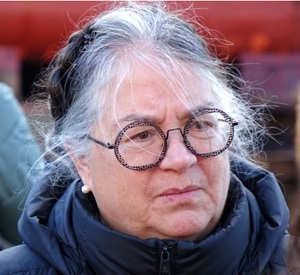 Two Mi’kmaw fishermen who were dropped off in the middle of nowhere in rural Nova Scotia in their sock feet on a cold and rainy March night, their cellphones seized by federal fisheries officers, hope an external investigation will shed some light on the actions of the officers that night. “Even though I went out and did what I did, still at the end of the day, it’s wrong what happened to me,” said Blaise Sylliboy of the Eskasoni First Nation in Cape Breton, one of the men detained for fishing for elvers at night along a river in Shelburne County early last spring. Federal Fisheries Minister Diane Lebouthillier announced in a news release Monday morning that an external review process will examine the incident on March 26, 2024, as well as department policies, enforcement practices, and “procedures to eradicate the potential for systemic biases or racism.” more, >>CLICK TO READ<< 08:24
Two Mi’kmaw fishermen who were dropped off in the middle of nowhere in rural Nova Scotia in their sock feet on a cold and rainy March night, their cellphones seized by federal fisheries officers, hope an external investigation will shed some light on the actions of the officers that night. “Even though I went out and did what I did, still at the end of the day, it’s wrong what happened to me,” said Blaise Sylliboy of the Eskasoni First Nation in Cape Breton, one of the men detained for fishing for elvers at night along a river in Shelburne County early last spring. Federal Fisheries Minister Diane Lebouthillier announced in a news release Monday morning that an external review process will examine the incident on March 26, 2024, as well as department policies, enforcement practices, and “procedures to eradicate the potential for systemic biases or racism.” more, >>CLICK TO READ<< 08:24







